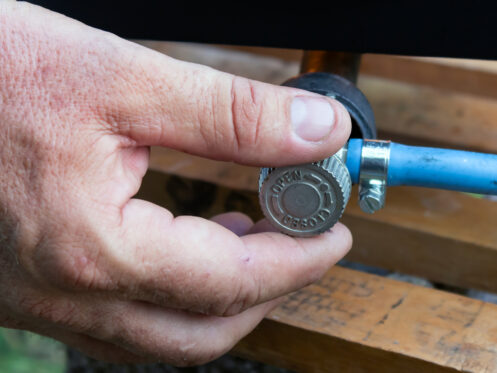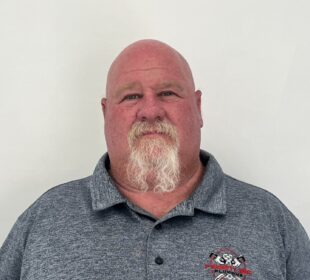When installing a flexible gas line, one of the most important factors is how far you can safely run it. Flexible gas lines are designed for easier installation and can be bent around corners, but they still have limitations. To ensure your gas appliances operate safely and effectively, it’s vital to understand some important considerations.
What Is a Flexible Gas Line?
Flexible gas lines are designed to transport natural gas or propane from your gas meter to appliances like your water heater, stove, or furnace. Unlike rigid metal pipes, flexible gas lines are made from materials like stainless steel or braided plastic. These materials allow the gas lines to bend, making them perfect for installations in tight spaces or around corners where traditional piping might be difficult to use.
How Far Can You Run a Flexible Gas Line?
The maximum safe length for a flexible gas line is determined by two factors, which are the diameter of the line and the type of gas it carries. Although a common recommendation is to keep runs under 20 feet, your setup may allow for some variation. Smaller diameter lines are designed for shorter distances and appliances with lower gas demands. Larger lines, on the other hand, can handle longer runs more effectively and minimize pressure loss. It’s critical to understand, though, that excessive length in any flexible gas line will result in a natural decrease in gas pressure, which will potentially hinder appliance performance.
Local Building Codes and Regulations for Gas Line Installations
When installing flexible gas lines, it’s crucial to consider local building codes and regulations. These rules are designed to ensure the safety of both your household and your property. In many regions, there are restrictions on how far flexible gas lines can run. For example, some areas may only allow flexible gas lines for short distances or for specific appliance connections, requiring rigid pipes for longer runs or installations within walls.
These codes may also address other important factors, like proper grounding, gas line connectors, and shut-off valves. It’s essential to consult local regulations and work with a licensed professional who understands the codes for your area to avoid problems with safety and insurance coverage. A licensed technician can guide you through the legal requirements and ensure that your installation is up to code.
Why Professional Installations Are Necessary
While you might be tempted to install a flexible gas line yourself, it’s always a good idea to leave this job to a licensed professional. Installing a gas line, even a flexible one, requires a high level of expertise to ensure the setup is safe, secure, and efficient.
A professional plumber or gas technician can assess your specific needs and install the line with the proper fittings, connections, and measurements to ensure optimal performance. They’ll also ensure that the installation meets local codes and regulations.
When to Consider Rigid Gas Lines Instead
While flexible gas lines are perfect for short distances and tight spaces, they aren’t always the best option for longer runs. If you need to install a gas line that stretches across your property or requires more durability, you may want to consider using rigid gas lines, such as copper or steel pipes. Rigid lines offer better protection against pressure loss and leaks over long distances, making them more reliable for certain applications.
Professional installers may use a combination of flexible and rigid lines in some installations. For example, they might use flexible gas lines for appliance connections where flexibility is needed and then switch to rigid pipes for the main run of the gas line. This approach allows for both the durability of rigid pipes and the versatility of flexible lines, giving you the best of both worlds.
Regular Maintenance and Inspections
Whether you’re using flexible or rigid gas lines, it’s important to keep your system well-maintained. Regular inspections can help catch problems before they become serious. A technician will check for leaks, inspect connections, and test the gas pressure to make sure everything is functioning properly.
Install Your Flexible Gas Line Safely Now
If you need a flexible gas line installed, Frontline Plumbing in Henderson, NV is here to help. You can think of us as your one-stop shop for all your plumbing needs as we offer comprehensive plumbing services, including residential and commercial plumbing maintenance and repair, gas line installations, sump pump repairs, and water treatment solutions. Give us a call today.

